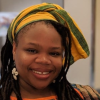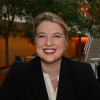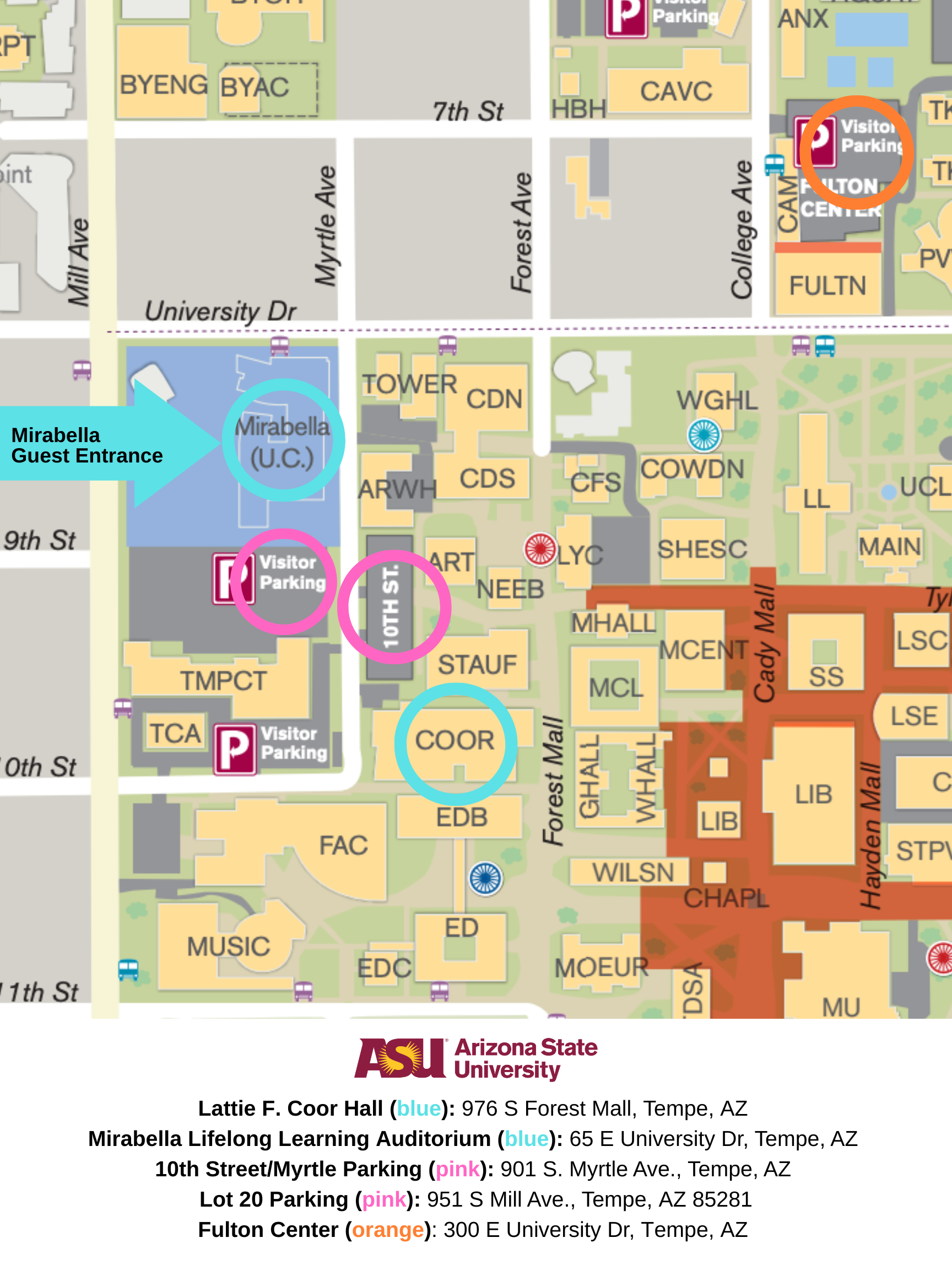
Rosenbluth Family Charitable Foundation Genocide Awareness Week
April 17-21, 2023
ASU Tempe Campus | Online
#NotOnOurWatch #GAW2023
Not on Our Watch
The 11th Rosenbluth Family Charitable Foundation Genocide Awareness Week, held April 17-21, 2023, is a series of lectures, exhibits and storytelling by distinguished survivors, scholars, politicians, activists, artists, humanitarians and members of law enforcement. This week-long event seeks to address how we, as a global society, confront violent actions and current and ongoing threats of genocide throughout the world, while also looking to the past for guidance and to honor those affected by genocide.
Drawing by Sienna Blakely.

ASU Tempe Campus | Online*
Rosenbluth Family Charitable Foundation Genocide Awareness Week @ ASU
*All sessions will be live-streamed unless otherwise noted.
Must be registered to receive live-stream links.
Genocide Awareness Week Schedule
Time: 3 p.m.
Location: Congregation Beth Israel 10460 N 56th St, Scottsdale, AZ 85253
Yom HaShoah Commemoration
NISSAN 5783
We will honor the memory of those who perished during the Holocaust and recognize those who survived. Visitors will select one of two concurrent sessions which will be followed by a commemoration program including a procession of survivors, candle lighting in memory of the 6 million, presenting the Shofar Zakhor Awards to recognize those who educate the community about the Holocaust, and musical pieces organized by Cantor Ettinger.
Concurrent sessions preceding program:
Making an Emotional Connection to the Holocaust: Reflections of local survivors
Close Quarters: Victims and Perpetrators Sharing the Kitchen in Postwar Germany, Margarete Myers Feinstein, PhD, Loyola Marymount University
9 - 9:30 a.m.
Location: Lattie F. Coor Hall 4403, ASU Tempe Campus
Introductory Presentation: Genocide and Displacement Across Time and Space
9:30 - 10:30 a.m.
Location: Lattie F. Coor Hall 4403, ASU Tempe Campus
Holocaust Survivor Presentation
Marion Weinzweig
Holocaust Survivor
Marion Weinzweig is one of the youngest living witnesses to the horrors of the Holocaust. She was born in Poland a year after Germany invaded her town. To save her life, her family hid her with Christians. After being exposed as a possible Jew, her Christian protectors left her in a ditch
next to a convent. She survived in hiding, in two separate convents, masquerading as a Catholic child. She speaks about her own and her family’s experiences during the war, giving eye-witness testimony to being Jewish during WWII, through the eyes of a child.
She is the author of “Lonely Chameleon.”
10:30 - 11:45 a.m.
Location: Lattie F. Coor Hall 4403, ASU Tempe Campus
Genocide and Atrocity in Myanmar
Wai Wai Nu
Women Peace Network
Nu is the founder and executive director of the Women’s Peace Network, an organization that advocates for the rights of marginalized women in Burma, especially in Rakhine State, and seeks to build peace and mutual understanding between Burma’s ethnic communities. A former political prisoner, Nu has dedicated her work to advancing democracy, human rights, and peace in her country. To engage with youth, she founded Yangon Youth Leadership Center, where she provides civic and political education and leadership training. In 2014, she co-founded Just for Women in Yangon, a legal advocacy organization that works with victims of gender-based violence. She was named one of the World Economic Forum’s “Young Global Leaders” (2018); one of Time magazine’s “Next Generation Leaders” (2017); and one of the Financial Times' “Women of the Year” (2018) and one 100 World Thinkers by Foreign Policy Magazine (2015). Nu received numerous international awards for her work, including N-Peace Awards (2014) and the city of Athens Democracy Awards (2021). In recent years, she has been a fellow at the United States Holocaust Memorial Museum and a visiting scholar at Columbia University. Currently, she is serving as a visiting Sr. Research Fellow at the Human Rights Center, the University of California–Berkeley school of law, where she received her Master of Laws degree.
1:45 - 3 p.m.
Location: Lattie F. Coor Hall 4403, ASU Tempe Campus
The Assyrians, Simele, and its Aftermath: A Narrative of Resilience
Sargon Donabed
Roger Williams University
Sargon George Donabed holds a PhD in Near and Middle Eastern Civilizations from the University of Toronto and a post-graduate degree in Anthrozoology/Animal Studies from Canisius College. Currently, he is a professor of history and cultural studies at Roger Williams University and his focus consists of indigenous and marginalized communities as well as cultural continuity, storytelling, wonder, and re-enchantment. He is the creator and editor for the book series Alternative Histories: Narratives from the Middle East and Mediterranean. Donabed is also published in a variety of journals from Folklore to National Identities and the International Journal of Middle East Studies and is the author of Reforging a Forgotten History: Iraq and the Assyrians in the 20th Century (Edinburgh University Press, 2015). Sargon is also co-founder of the Assyrian Studies Association (assyrianstudiesassociation.org). He is an expert on Assyrian-Mesopotamian culture and currently penning two fantasy series; an epic fantasy entitled Of Beasts and Mischief: The Unremembered and a midgrade/YA tale Scion of the Ancients, an alternate reality/timeline based on the epic of Gilgamesh.
3:15 - 4:30 p.m.
Location: Lattie F. Coor Hall 4403, ASU Tempe Campus
What's Next?: Armenian Genocide Restitution in the Post-Recognition Era
Taner Akcam
Armenian Genocide Research Program of the Promise Armenian Institute at UCLA
Historian Taner Akçam is the inaugural director of the Armenian Genocide Research Program at Promise Institute at UCLA. Before coming to UCLA, Akçam held the Kaloosdian and Mugar Endowed Chair of Armenian Genocide Studies at Clark University.
Akçam is widely recognized as one of the first Turkish scholars to write extensively on the Ottoman-Turkish Genocide of the Armenians in the early 20th century. He published extensively on Armenian Genocide and Turkish Nationalism. His most known books are A Shameful Act: The Armenian Genocide and the Question of Turkish Responsibility (Metropolitan Books, 2006) and “Young Turks’ Crime Against Humanity: The Armenian Genocide and Ethnic Cleansing in the Ottoman Empire, Princeton University Press, 2012, received several awards. Akçam’s latest book is “Killing Orders: Talat Pasha’s Telegrams and the Armenian Genocide (Palgrave 2018).
He is the founder of Krikor Guerguerian Online Archive.
4:30 - 5 p.m.
Location: Mirabella Lifelong Learning Auditorium, ASU Tempe Campus
Armenian Performers
Narine Babayan (Qanon)
Gevork Gevorkyan (Kamancha)
Daniel Decker (Vocalist)
5 - 7 p.m.
Location: Mirabella Lifelong Learning Auditorium, ASU Tempe Campus
Spreading the Word: From the American Committee for Syrian and Armenian Relief to the Museum of Jewish Heritage - A Memorial to the Holocaust
Robert Morgenthau
Bob joined Spears Abacus as a Principal in 2011 and is a senior member of the investment team. Bob works closely with families and individuals, especially those who have recently experienced life-changing events such as divorce or death of a spouse. He has deep experience as an independent trustee and executor
Bob started his investment career as a portfolio manager at Shearson/American Express in 1982 and moved to Lazard Freres & Co. in 1990 in the same capacity. He was named partner in 1993 and became global head of distribution of Lazard Asset Management. After a brief stint as President of Private Advisory Services at Bank of America, Bob founded NorthRoad Capital Management, an international and global equity manager, which he sold to Madison Investment Advisors at the end of 2010. Abacus & Associates was a client of NorthRoad which is how he came to know his current colleagues.
Bob currently serves as Trustee and Treasurer of the Museum of Jewish Heritage – A Living Memorial to the Holocaust. He is also a Director of the Police Athletic League, a New York City based social services agency and the Riverdale Sanitation Corporation, a private, neighborhood utility. Previously, he served as Board Chair of the Foundation for Child Development, Vice Chair of Ethical Culture Fieldston School and Treasurer of the Riverdale Neighborhood House
Bob received a BA from Amherst College in 1979.
10:30 - 11:45 a.m.
Location: Lattie F. Coor Hall 4403, ASU Tempe Campus
Persecuted and Displaced Youth in Displaced Persons, Refugee Camps
Panelists:
Zaw Tu Hkawng
Kachin State Myanmar
Zaw Tu Hkawng is an anti-military coup activist from Myanmar and a founder of the "Through the Eyes of Agony" art program for Myanmar’s internally displaced children. Zaw has trained a diverse group of leaders across Myanmar to become Character-Driven-Leaders who respect human rights and embrace democratic values. In addition, Zaw has worked for BBC Media Action Myanmar as a project coordinator for the nationally broadcast radio drama called "Tea Cup Diaries" which supports peace and social cohesion among its varied ethnic and religious communities. Moreover, Zaw has provided special assistants to Myanmar refugees in Malaysia and rehabilitated drug users in Myanmar.
Mohammed H. Al Tarawneh
Blue Umbrella Group
International lawyer and founder of Blue Umbrella for training and community development, Mr. Al Tarawneh worked in the field of development of local communities, civil society organizations and youth since 2006, with focused on refugee youth group, providing them a safe space for social, culture and leadership experience.
Mr. Al Tarawneh was part of The Next Generation program at The McCain Institute for international leadership – ASU, a key aspect of the program is each NGL’s preparation of an individual Leadership Action Plan. Aimed at defining the tangible steps and actions the NGLs will take to bring about positive change in their home societies. The graduation project from the program was called “Blue Umbrella”.
Blue Umbrella was founded in Jordan to face head on the negative effects of the refugee crisis, and currently working on projects that benefit rural societies with specific interest regarding the empowerment of women and the benefit of youth and refugees. Thus far, some of our projects have involved training in Social Entrepreneurship, Human Rights, rule of law and governance and Open Training to NGOs and have benefited more than 10,000 youths.
“The Hazara Plight and Global Hazara Activism”
Afghanistan - ASU students Mina Mushtaq and Arifa
Moderator: Ambassador Edward O’Donnell
Arizona State University
Ambassador (ret) Edward O’Donnell is a professor of practice in the School of Politics and Global Studies where he teaches courses on U.S. foreign policy, human rights, lessons of the Holocaust and preventing mass atrocities and genocide.
Ambassador O’Donnell was a career U.S. Foreign Service Officer serving in Afghanistan, Germany, Austria, Colombia, Panama and Paraguay and other positions in the State Department in Washington, D.C. He served as a negotiating Ambassador in multilateral and bilateral diplomatic assignments including Ambassador and Special Envoy for Holocaust issues and fighting Anti-Semitism. He also was Charge d’ Affaires, Deputy Chief of Mission, Consul General (Principal Officer), Economic Counselor and Commercial Attache. He also was Executive Assistant to three Under Secretaries and was an advisor on the Secretary’s policy planning staff.
He worked in Kabul, Afghanistan (2011 – 2014) as Senior Mentor/Advisor to the Afghan Minister of Counter Narcotics and also was a State Department inspector (2010 – 2011) in the Middle East Regional Office of the Inspector General, State Department. From 2009 – 2011, he worked for the Bureau of Congressional Relations as Acting Principal Deputy Assistant Secretary and earlier ran the State Department liaison office to the House of Representatives.
1:45 - 3 p.m.
Location: Lattie F. Coor Hall 4403, ASU Tempe Campus
Denial of the Holocaust and the Armenian Genocide
Barlow Der Mugrdechian
Fresno State University
Professor Barlow Der Mugrdechian has been teaching Armenian and Armenian Studies courses for 38 years at California State University, Fresno. He is the Berberian Coordinator of the Armenian Studies Program and Director of the Center for Armenian Studies. He is the editor of the Armenian Series of The Press at California State University, Fresno, and has published 17 books in the series. He teaches courses in the Armenian language, history, culture and the genocide.
Sarah Cushman
Holocaust Educational Foundation of Northwestern University
Sarah M. Cushman is Director of the Holocaust Educational Foundation of Northwestern University and a lecturer in the History Department at Northwestern. The Holocaust Educational Foundation of Northwestern University advances Holocaust education at the university level throughout the world by supporting scholarship and teaching. Cushman has been involved in Holocaust Education and scholarship for two decades, serving as Director of Youth Education at the Holocaust Memorial and Tolerance Center of Long Island and Head of Educational Programming at the Strassler Center for Holocaust and Genocide Studies at Clark University. She earned her doctorate in Holocaust History from Clark University in 2010. Cushman’s research centers on women’s experiences during the Holocaust and the history of the women’s camp in Auschwitz-Birkenau. She is currently working on her first book, Auschwitz: the Women’s Camp, which is an adaptation of her dissertation and co-editing the Routledge Handbook of Auschwitz Birkenaut (forthcoming, 2024). Cushman has written several articles related to this topic including an overview of the history of the women’s camp; an analysis of Jewish women prisoner functionaries; and an exploration of women’s experiences of sexual violence and sexual agency. In addition, she has written a personal essay about her journey to studying the Holocaust and a contribution about the place of Primo Levi in the modern Jewish canon. Cushman is co-editor of Holocaust Studies: A Journal of Culture and History and serves on the leadership of Out Network Evanston, Northwestern University’s faculty/staff LGBTQIA+ affinity group.
3:15 - 4:30 p.m.
Location: Lattie F. Coor Hall 4403, ASU Tempe Campus
Without a Home: German Jews as Displaced Persons in Postwar Germany
Margarete Myers Feinstein, Loyola Marymount University
Margarete Myers Feinstein is associate director and clinical assistant professor in Jewish Studies at Loyola Marymount University. She received her Ph.D. in Modern European History from the University of California, Davis. Interested in the legacies of Nazism, she has published on postwar German national identity and on Jewish Holocaust survivors, including State Symbols, 1949–1959 (Brill, 2002), Holocaust Survivors in Postwar Germany, 1945–1957 (Cambridge University Press, 2010), and numerous book chapters and articles. Gender, memory, and personal narratives often feature in her work. Most recently, she published “Reconsidering Jewish Rage after the Holocaust” in Palgrave Handbook of Holocaust Literature and Culture, edited by Victoria Aarons and Phyllis Lassner (2020). Her current project on retribution after the Holocaust has received support from the Hadassah-Brandeis Institute and the National Endowment for the Humanities.
4 p.m.
Location: Tucson Jewish Community Center, 3800 E River Rd, Tucson, AZ 85718
Screening of the film “The Partisan with the Leica Camera”
*This event will not be live-streamed or recorded.
5 - 7 p.m.
Location: Mirabella Lifelong Learning Auditorium, ASU Tempe Campus
Music in the Face of Unparalleled Evil: the Extraordinary Humanism of Herbert Zipper
Violinist Adam Millstein
Adam Millstein is a violinist pursuing his Artist Diploma degree at the Colburn School in Los Angeles under the tutelage of renowned pedagogue Robert Lipsett. Mr. Millstein holds a Masters of Music Degree from Colburn and a Bachelor of Musical Arts Degree from the University of Michigan. He is the Program Manager of the Ziering-Conlon Initiative for Recovered Voices at the Colburn School, an initiative that promotes the performance of music by composers whose works and lives were suppressed as a result of Nazi Policies from 1933-1945. He has given lecture recitals around the world on the subject of these composers and has recorded the music of Erwin Schulhoff for the Delos Label. An accomplished professional violinist, Mr. Millstein has toured internationally and has performed in leadership positions as guest associate concertmaster of the Baltimore Symphony, Louisville Orchestra, and as concertmaster of the Aspen Philharmonic.
10:30 - 11:45 a.m.
Location: Lattie F. Coor Hall 4403, ASU Tempe Campus
Building Community and Identity in Diaspora
Panelists:
Shamara Alhassan
Arizona State University
Shamara Wyllie Alhassan is Assistant Professor of Religious Studies with a focus on the Black experience in the Americas and in the School of Historical, Philosophical and Religious Studies at Arizona State University. She completed her PhD in Africana Studies at Brown University in May 2019. She earned an AM in Africana Studies at Brown University, an MS.Ed in Childhood Education from City University of New York-Hunter College, and a B.A. in Africana Studies and Creative Writing from Sarah Lawrence College. Dr. Alhassan specializes in Rastafari Studies, Black radical epistemologies, Black women’s intellectual history, Africana philosophy and religion and decolonial research methods. Her current work on Africana women's radical epistemologies focuses on the ways Rastafari women use livity to build Pan-African communities and combat anti-black gendered racism, religious discrimination and racial capitalism in Ghana, Jamaica and Ethiopia. Her dissertation, “Rastafari Women’s Intellectual History and Activism in the Pan-African World,” received the Marie J. Langlois Dissertation Prize for an outstanding dissertation in the area of feminist studies from the Pembroke Center for Teaching and Research on Women at Brown University. Her manuscript, Re-Membering the Maternal Goddess: Rastafari Women's Intellectual History and Activism in the Pan-African World is the winner of the 2019 National Women's Association and the University of Illinois Press First Book Prize. Her research awards include the 2018-2019 African and African Diaspora Studies Dissertation Fellowship at Boston College. Her publications appear in Callaloo, the National Political Science Review, and Religions.
Stanley Mirvis
Arizona State University
Stanley Mirvis is associate professor of history in the School of Historical, Philosophical, and Religious Studies and the Harold and Jean Grossman Chair of Jewish Studies. His research focuses on the social history of Jews in the early modern Atlantic—the “Western Sephardic Diaspora”—dealing largely with issues of Diasporic and creole identity. He contributed the historical essays to photographer Wyatt Gallery’s Jewish Treasures of the Caribbean (Schiffer Press, 2016) and is the co-editor of From Catalonia to the Caribbean: The Sephardic Orbit from Medieval to Modern Times (Brill, 2018), a collection of essays in honor of his doctoral advisor, Jane. S. Gerber. His forthcoming monograph is titled The Jews of Eighteenth-Century Jamaica: A Testamentary History of a Diaspora in Transition (Yale University Press, 2019), a social historical study of hundreds of last will and testaments exploring the relationship between colonial and metropolitan Jews and the nature of Jewish creolization in the British West Indies.
Alan Shane Dillingham
Arizona State University
Alan Shane Dillingham is assistant professor of History at Arizona State University. He received his doctoral degree in history from the University of Maryland. Having previously taught a multiple liberal arts institutions, Dillingham seeks to connect the history and politics of Native peoples across the Americas in his teaching and scholarship.
Dillingham's award-winning first book, Oaxaca Resurgent: Indigeneity, Development, and Inequality in Twentieth-Century Mexico (Stanford University Press, 2021), traces the contested history of Mexican indigenista policy and how Indigenous people of southern Mexico advocated for alternative forms of development and anticolonial education. The American Society for Ethnohistory selected Oaxaca Resurgent for its 2022 Erminie Wheeler-Voegelin Book Award and the Conference on Latin American History selected Oaxaca Resurgent for its 2022 María Elena Martínez Prize in Mexican History.
1:15 - 3 p.m.
Location: Mirabella Lifelong Learning Auditorium, ASU Tempe Campus
Screening of The Stateless Diplomat
Followed by discussion with Mimi Malayan, Producer/ Director/ Writer
Mimi Malayan was born in San Francisco. She attended George Washington University, majoring in French Language and Literature and the University of California at Berkeley, earning her Master of Landscape Architecture. Mimi practiced her trade for 20 years, focusing her professional career on urban parks, plazas, and playground design.
In 2002 while cleaning her uncle’s apartment, Mimi discovered a box of papers and books by Diana Apcar. This was the seed to unraveling another interest — uncovering her great-granddaughter’s life story. It was almost a decade later that Mimi started researching Diana’s life and accomplishments. The more she investigated the more awe struck she became.
The result of this work is the film you are about to see, The Stateless Diplomat, which released in November 2018. Over the past year, Mimi has shown the film at several film festivals, and it has won several awards, including: Armin T. Wegner Humanitarian Award (Arpa International Film Festival, 2019), Best Biographical Film (New Hope Film Festival, July 2019), and Audience Choice for Best Documentary (Pomegranate Film Festival, November 2018).
*This event will not be live-streamed or recorded.
3:15 - 4:30 p.m.
Location: Mirabella Lifelong Learning Auditorium, ASU Tempe Campus
Refugee Resettlement: Lifeline after Genocide
Nejra Sumic
We Are All America
Nejra Sumic is a former Refugee who was forced to flee from her home country of Bosnia and Herzegovina. After surviving through a civil war, Nejra and her family were granted asylum as refugees in the United States.
Nejra received her Master’s in Public Administration at Western International University and is the co-author of “Divine Love”.
In her current role, she is the National Field Manager of the We Are All America Campaign and the Arizona Delegate for Refugee Congress, where she helps advocate for refugees and asylum seekers. Nejra sits on various national and local boards and is part of the SheLeads Mentorship Program, where she mentors other women. She is most passionate about human rights because everyone deserves the right to seek safety and refuge.
Naomi Steinberg
HIAS
Naomi Steinberg joined HIAS as Vice President, Policy and Advocacy in September, 2017.
Previously, Naomi was the Director of Refugee Council USA (RCUSA), a coalition dedicated to refugee protection, welcome and excellence in the U.S. refugee resettlement program. In this position, she led the overall work of the Council, including facilitating partnerships between RCUSA and other nongovernmental organizations, as well as fostering strong communications between international, federal and state partners. Prior to her work with RCUSA, Naomi was the Deputy Director of the Southeast Asia Resource Action Center (SEARAC). At SEARAC, she focused on building the capacity of community-based, refugee-led organizations.
Naomi has an M.A. in Southeast Asian Studies from Cornell University and a B.A. in Political Science from Macalester College.
5 - 7 p.m.
Location: Mirabella Lifelong Learning Auditorium, ASU Tempe Campus
Introduction by Ramina Jajoo
Musical Performance and discussion by Leah Fisher
Assyrian-American, Leah Rose Fisher, is a New York City-based Singer, Voice Teacher, and Performing Artist. She holds a Master’s Degree in Music from New York University with an advanced certificate in Vocal Pedagogy. Leah is active in film and television, in the recording studio for both albums and voiceover work, and on stage in theatre, musical theatre, and opera.
Over the years, she has been able to sing for audiences large and small both nationally as well as across the globe. Since its inception in 2018, Leah has been honored to be able to sing with Assyrian Women, a choral ensemble created by the Assyrian Arts Institute. Last year, she had the opportunity to step into the role of Choral Coordinator for the group, working tirelessly with AAI’s leaders and fellow singers to bring music to life.
As a voice teacher, she has a private studio teaching singing to all ages and levels and is honored to be the voice teacher for the Assyrian Arts Institute’s Assyrian Children.
She looks forward to future opportunities to spread the Good News in music, on stage, and in tv and film. Follow her on social media @LeahRoseFisher.
9 - 10:15 a.m.
Location: Lattie F. Coor Hall 4403, ASU Tempe Campus
"Those Who Have the Sin, Go to this Side": Intersections of Religion and Genocide
Kate Temoney
Montclair State University
Dr. Kate E. Temoney is Associate Professor and Chair of the Department of Religion at Montclair State University. She is the American Academy of Religion co-chair of the Religion, Holocaust, and Genocide Unit; a member of the United States Holocaust Memorial Museum Committee on Ethics, Religion, and the Holocaust, and an Editor for Genocide Studies and Prevention: An International Journal. Trained as a comparative religious ethicist, she earned a BA from Wake Forest University, an MEd from The College of William & Mary, and an MA and PhD from Florida State University.
Dr. Temoney teaches courses on Religious Ethics, the Holocaust, Genocide, African Religions, Religions of the World, and Religion & Human Rights, and her research addresses the intersections of religion, genocide, human rights, and theory of history. In addition to national and international guest lectures as well as presentations to government and non-governmental agencies, her scholarship appears in several journals and edited volumes. A selection of her work includes: “The 1994 Rwandan Genocide: The Religion/Genocide Nexus, Sexual Violence, and the Future of Genocide Studies” in Genocide Studies and Prevention: An International Journal (2016); “Anatomizing White Rage: ‘Race is My Religion!’ and ‘White Genocide’” in The Religion of White Rage: White Workers, Religious Fervor, and the Myth of Racial Progress (University of Edinburgh Press, 2020); “The War Came Alive Inside of Them: Genocidal Rape, Religion, and Moral Injury” in the Journal of Religious Ethics (2021); History for ‘Reconciliation’: A Critical Assessment of Three Models and Their Implications,” in SHISO (2022, a Japanese humanities journal); “An Assessment of the Plan of Action for Religious Leaders and Actors to Prevent Incitement to Violence that Could Lead to Atrocity Crimes" in the Routledge Handbook on Religion and Genocide (Routledge, 2022); and “Religion and Genocide Studies” in The Handbook of Genocide Studies (Edward Elgar Press, forthcoming). In progress are a book chapter for the Oxford Handbook on History and Memory, a focus issue for the Journal of Interreligious Studies, and an article for the Journal of Hostility Anger, Repression, and Malice (HARM).
10:30 - 11:45 a.m.
Location: Lattie F. Coor Hall 4403, ASU Tempe Campus
Sexual Violence as Dispossession: Rethinking Genocide & 'Ethnic Cleansing'
Elisa von Joeden-Forgey
Keene State College
Elisa von Joeden-Forgey is the Endowed Chair in Holocaust and Genocide Studies at Keene State College and director of the Master’s Program in Genocide Prevention and Human Security. Before this, she was the Dr. Marsha Raticoff Grossman Associate Professor of Holocaust and Genocide Studies at Stockton University in New Jersey, where she also directed the master’s program in Holocaust and Genocide Studies and founded the world’s first academic, graduate-level Genocide Prevention Certificate Program. She is former President of Genocide Watch, former First Vice President of the International Association of Genocide Scholars, and founder and Co-President of the Lemkin Institute for Genocide Prevention. She received her MA and PhD in History from the University of Pennsylvania and her BA from Columbia University. She has received fellowships from the Social Science Research Council, the Ford Foundation, and the MacArthur Foundation. She has taught undergraduate and graduate courses on the Holocaust, comparative genocide, gender, sexual violence, war, human rights, imperialism, and genocide prevention at several universities and has lectured and published widely on these topics. Her most recent book is the edited volume, The Cultural History of Genocide, Vol. 5: The Era of Total War, published in 2021 by Bloomsbury Press.
1 - 3 p.m.
Location: Mirabella Lifelong Learning Auditorium, ASU Tempe Campus*
Screening of Aurora’s Sunrise
Preserving and Sharing Stories of Survival: The Significance of Conducting Oral History Research and an Introduction to Aurora’s Sunrise
Megan Reid
International Institute for Genocide and Human Rights Studies (A Division of the Zoryan Institute)
Megan Reid is the Deputy Executive Director of the Zoryan Institute and its division, the International Institute for Genocide and Human Rights Studies. Founded in 1982, the Zoryan Institute is a non-profit organization dedicated to raising awareness on issues relating to genocide, human rights and diaspora-homeland relations through scholarship, research and education. Megan serves on the Management Committee of both of the Institute’s peer-reviewed academic journals, Genocide Studies International and Diaspora: A Journal of Transnational Studies, and is the lead coordinator of the Institute’s annual Genocide and Human Rights University Program (GHRUP). Megan manages the work of the Institute’s three offices, in Toronto, Arlington, and Yerevan, and has conceptualized programs for the Zoryan Institute such as, the Genocide and Human Rights Webinar Series, the Promoting Equity, Tolerance, and Reconciliation Through Genocide Education Program for high school classrooms, the Dispersion podcast, and its Transcription and Translation: Preserving and Sharing the Stories of Canada’s Armenian Genocide Survivor Program. She oversees the preservation, cataloguing, digitization, distribution and the use of the Zoryan Institute’s archival collections, including its renowned Armenian Genocide Oral History Collection, containing over 780 audio-visual interviews with Armenian Genocide survivors.
The Inspiration Behind Aurora's Sunrise: A Q&A with Dr. Rouben Adalian
Rouben P. Adalian
Armenian National Institute (ANI)
Dr. Rouben P. Adalian is a member of the Board of Directors the Zoryan Institute. He is the Director of the Armenian National Institute (ANI), a Washington, DC-based non-profit organization dedicated to educating the public through the study, research, and affirmation of the Armenian Genocide. ANI maintains the most widely-consulted institutional website on the Armenian Genocide, which hosts a multitude of instructional resources, including a set of downloadable digital exhibits. In 1993 Dr. Adalian completed a project to document the Armenian Genocide in the United States National Archives. As a result, Chadwyck-Healey Inc. published 37,000 pages of American evidence along with the accompanying 476-page Guide to the Armenian Genocide in the U.S. Archives 1915-1918 issued in 1994. Dr. Adalian is also the associate editor of the award-winning Encyclopedia of Genocide (1999), and has contributed to a number of publications including Genocide in Our Time (1992), Genocide in the Twentieth Century (1995), Studies in Comparative Genocide (1999), Genocide: Essays Toward Understanding, Early-Warning, and Prevention (1999), Pioneers of Genocide Studies (2002), America and the Armenian Genocide (2003), Century of Genocide: Critical Essays and Eyewitness Accounts (2004). He is the author of From Humanism to Rationalism: Armenian Scholarship in the Nineteenth Century (1992), and Historical Dictionary of Armenia (2010), and contributed to Armenia and the Bible (1993), The Making of Foreign Policy in Russia and the New States of Eurasia (1995), and Encyclopedia of the Modern Middle East and North Africa (2004). Dr. Adalian received a Ph.D. in history from the University of California, Los Angeles, and has taught at a number of universities, including the Elliott School of International Affairs, George Washington University; School of Foreign Service, Georgetown University; and School of Advanced International Studies, Johns Hopkins University.
*This event will not be live-streamed or recorded.
3:15 - 4:30 p.m.
Location: Mirabella Lifelong Learning Auditorium, ASU Tempe Campus
Diplomatic engagement on internally displaced persons, refugees, and the Yezidi and Uyghur genocides
Matthias Mitman
Executive Secretary & Deputy Assistant to the President at National Security Council
Matthias Mitman retired from the Foreign Service in 2021 after a 33-year career that included senior positions in diplomatic posts in Europe, Central America and the Middle East. He also served on the National Security Council staff and the U.S. State Department in Washington. Matthias currently works as a self-employed consultant.
5-7 p.m.
Location: Mirabella Lifelong Learning Auditorium, ASU Tempe Campus
Keynote
Assistant Secretary Julieta Valls Noyes
Bureau of Population, Refugees, and Migration, U.S. Department of State
Julieta Valls Noyes, a career member of the Senior Foreign Service, became Assistant Secretary of State for the Bureau of Population, Refugees, and Migration on March 31, 2022.
Previously, she served as Deputy Director and Acting Director of the Foreign Service Institute from 2018-2021. She was U.S. Ambassador to the Republic of Croatia from 2015-2017, and served as Deputy Assistant Secretary for Western Europe and the European Union in the Bureau of European and Eurasian Affairs from 2013-2015. Her earlier assignments include Deputy Executive Secretary for the Department of State, Deputy Chief of Mission at the U.S. Embassy to the Holy See, Deputy Director of the State Department Operations Center, Director of the Office of Multilateral and Global Affairs in the Bureau of Democracy, Human Rights and Labor, and several other domestic and overseas positions in the Bureaus of European and Western Hemisphere Affairs. Ambassador Noyes is a graduate of Wellesley College and the National Defense University. She is a first-generation American whose parents entered the United States from Cuba as refugees. She is married to Nicholas Noyes, Jr., a retired Foreign Service Officer, and has three children.
Introduction by Sheryl Bronkesh
Music by Phoenix Boys Choir
Friday's talks will not be live-streamed or recorded.
9 - 10 a.m.
Location: Lattie F. Coor Hall 4403, ASU Tempe Campus
It Can’t Happen Here: The Relationship Between Policing and Human Rights Violations
10 - 11 a.m.
Location: Lattie F. Coor Hall 4403, ASU Tempe Campus
United States Federal Law Enforcement and International Human Rights Violations
11 a.m. - 12 p.m.
Location: Lattie F. Coor Hall 4403, ASU Tempe Campus
Identifying Hate – FBI and Anti-Defamation League
1 - 2 p.m.
Location: Lattie F. Coor Hall 4403, ASU Tempe Campus
Panel Discussion – The Role of Law Enforcement in Investigating, Prosecuting, and Preventing Human Rights Violations
2 - 3 p.m.
Location: Lattie F. Coor Hall 4403, ASU Tempe Campus
Investigating Violations and Upholding the Constitution – The FBI’s Civil Rights Unit
9 a.m. - 3 p.m.
Location: Scottsdale Community College
Teaching About the Armenian Genocide and the Legacy of Denial
This workshop, led by The Genocide Education Project, explores the teaching of modern-era genocide through its prototype, the Armenian Genocide. Speakers will address the meaning, structure, and stages of genocide, provide a historical review of the persecution and extermination of Armenians by the Turkish leadership of the Ottoman Empire (1915-1918), highlight connections and parallels with subsequent genocides, as well as its ongoing political and social effects. Educators will be introduced to a variety of primary and secondary source teaching materials to help them effectively include this topic in high school social studies and English language arts curriculum.
Parking
Event Locations
Lattie F. Coor Hall: 976 S Forest Mall, Tempe, AZ
Mirabella Lifelong Learning Auditorium: 65 E University Dr, Tempe, AZ
Parking Options
10th Street/Myrtle Parking: 901 S. Myrtle Ave., Tempe, AZ
Lot 20 Parking: 951 S Mill Ave., Tempe, AZ 85281
Fulton Center: 300 E University Dr, Tempe, AZ


























